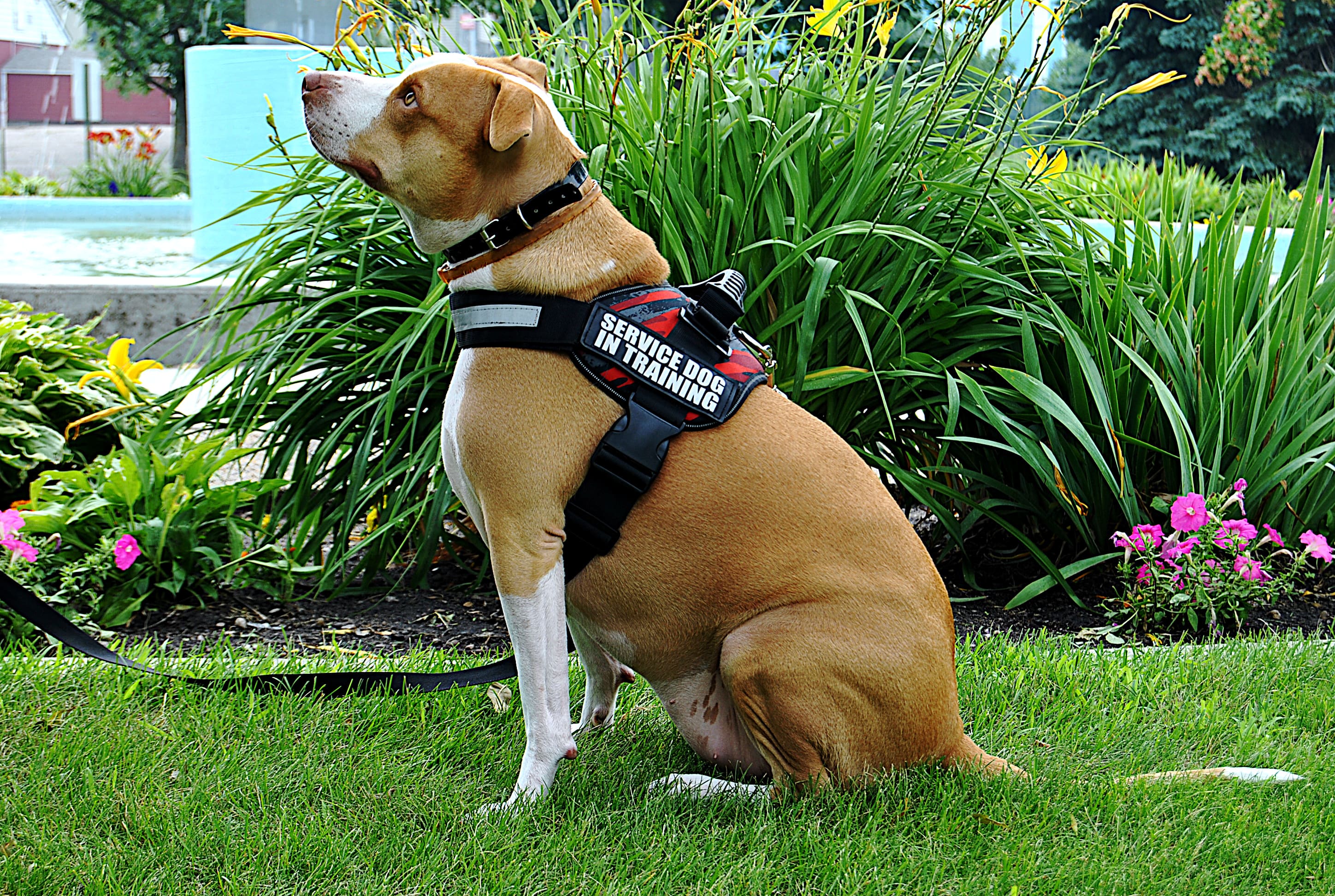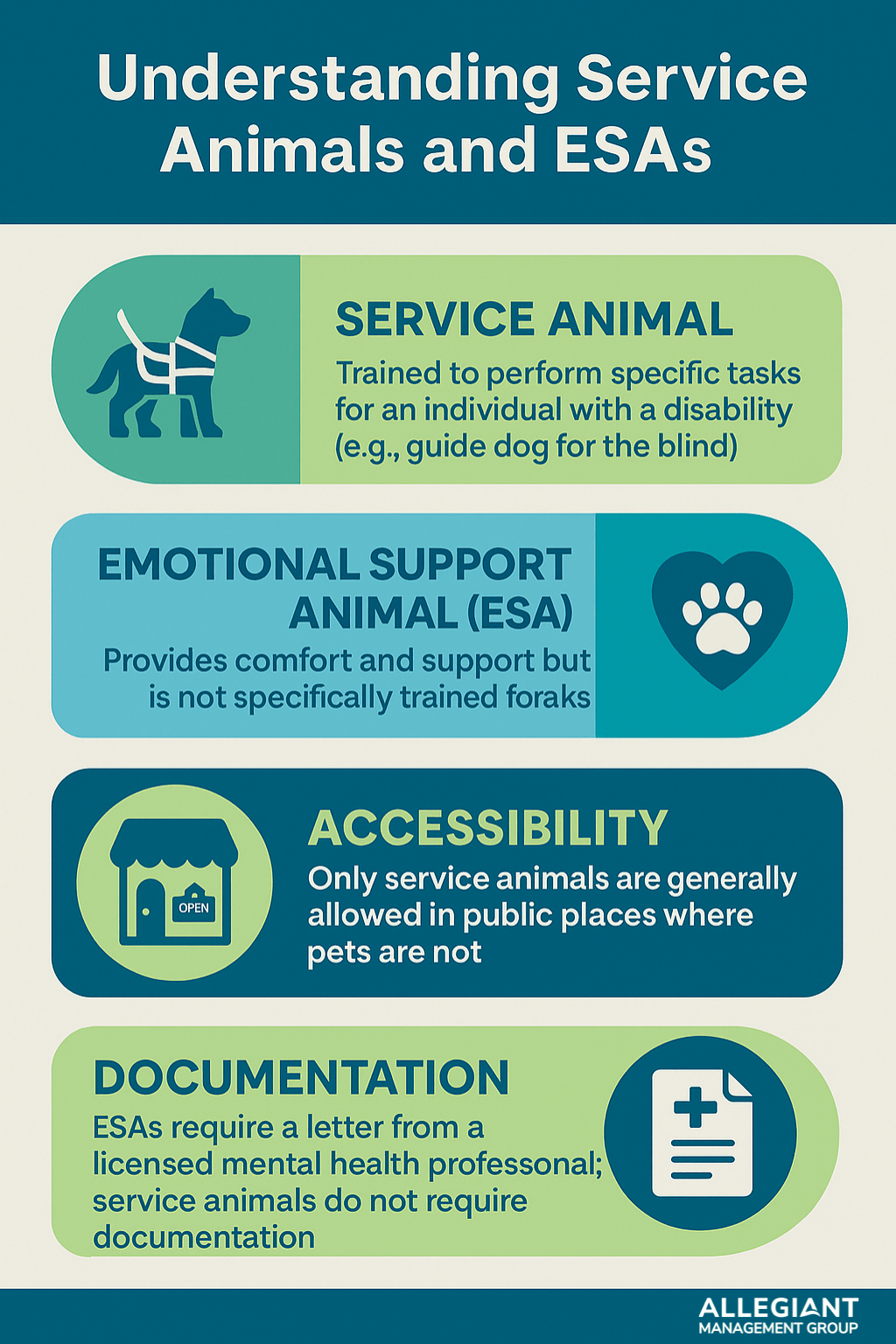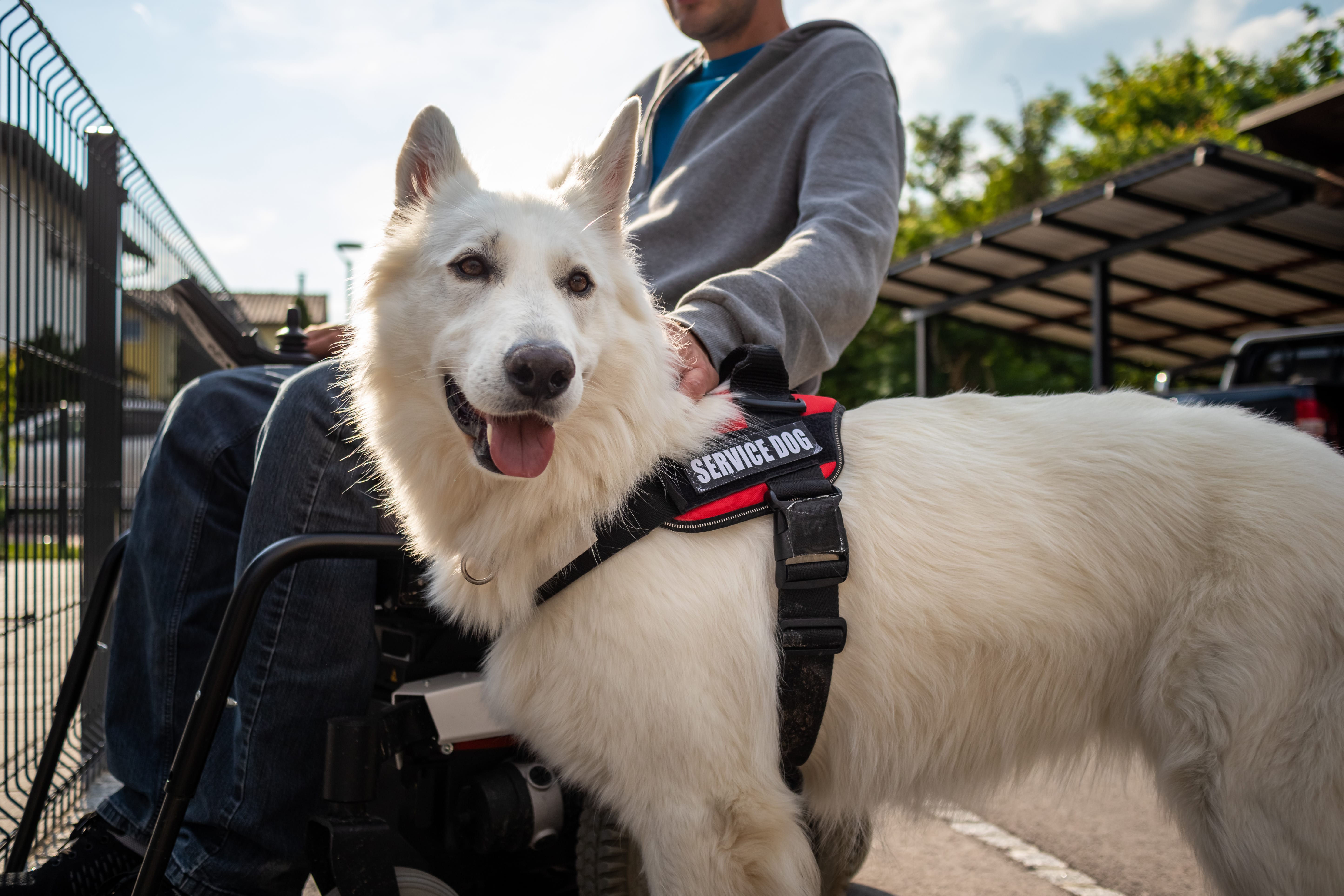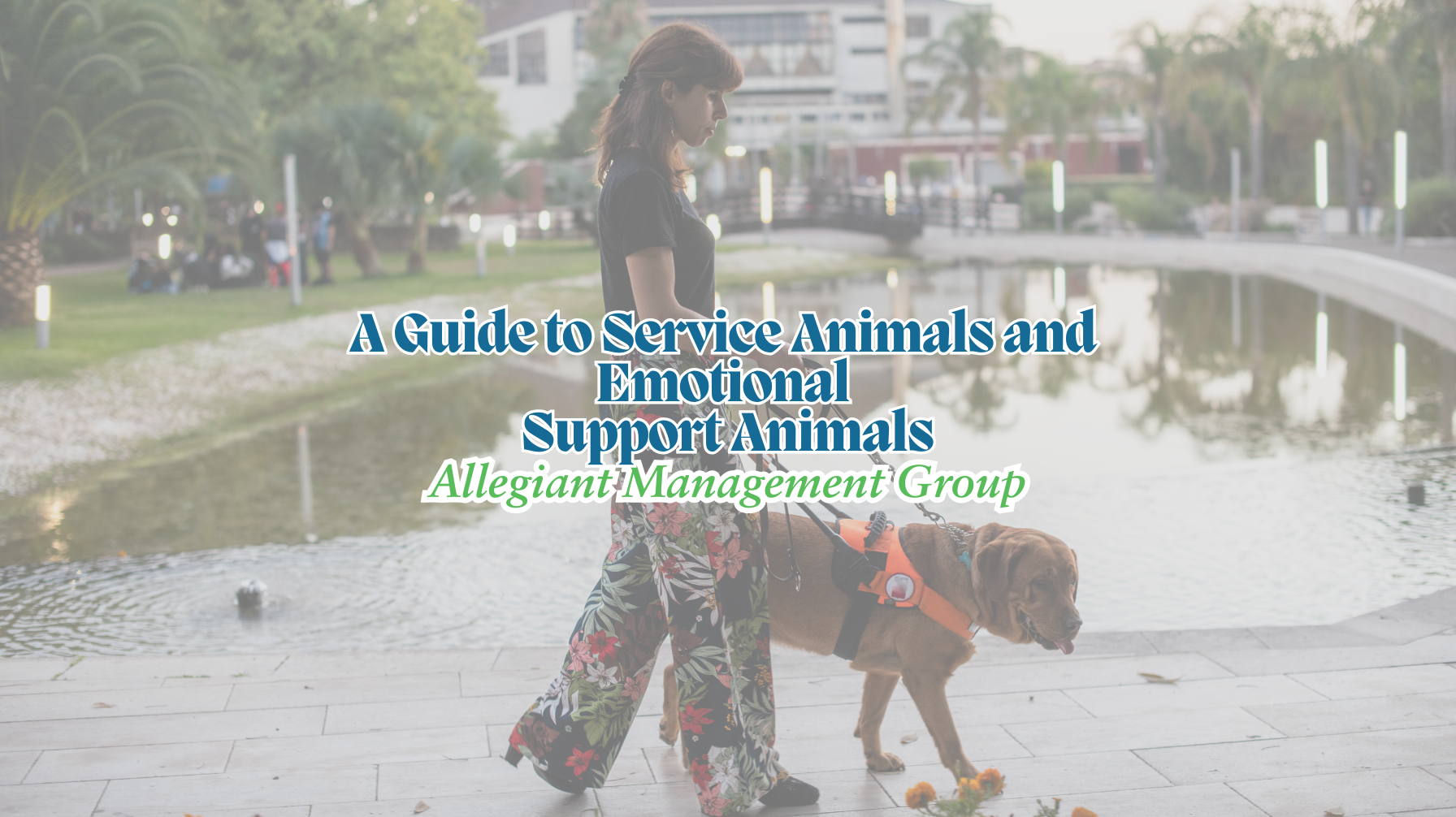Last Updated: 08/22/2025
Service Animals and Emotional Support Animals: Understanding Roles, Rights, and Protections
Service animals (SA's) and emotional support animals (ESA's) provide invaluable assistance to individuals with disabilities or mental health conditions. However, the laws and regulations surrounding them can be confusing.
This article clarifies the differences, rights, and responsibilities associated with these important companions.

Understanding Service Animals and ESA's
SA's, according to the Americans with Disabilities Act (ADA), are usually dogs. They train to work or perform tasks for people with disabilities, a physical injury, or a person with a disabling condition.
For example, they are trained to do work such as guide blind people safely, or alert others to seizures. Dogs are capable of learning particular tasks for the benefit of others.
ESA's offer comfort just by being with a person. They do not need to perform specific tasks for a disability. ESAs can be any type of animal. This encompasses dogs, cats, rabbits, and birds. Their presence can fit into many living situations.
Definitions and Differences
- Trainers train SA's to help people with specific tasks. For example, service dogs assist visually impaired individuals. They guide them safely through the city, acting as seeing eye dogs.
- ESA's provide comfort. For example a therapy dog who helps someone who has anxiety attacks also known as psychiatric service animals.
- Only dogs and miniature horses qualify as SA's, while ESA's can include any species.
- The ADA protects service animals, but it does not protect ESA's.

Legal Protections acomfond Rights
SA's are protected under the ADA, which allows them in public spaces where pets are typically not allowed. This protection helps people with disabilities.
It allows them to use their service animals in important places. These places include restaurants, stores, and public transport.
Federal laws mainly protect ESA's. These laws are the Fair Housing Act and the Air Carrier Access Act.
In 2021, the Department of Transportation changed the rules for air travel. Now, airlines do not have to allow ESA's in the cabin.
Housing still protects ESAs. However, landlords can ask for proper documents from a doctor to confirm the need for an ESA.

Service Animals: Roles and Regulations
SA's perform a wide variety of tasks, tailored to the specific needs of their handlers. For example, SA's for individuals with mobility impairments may assist with opening doors or retrieving items.
Similarly, psychiatric SA's may remind their handlers to take medication or disrupt harmful behaviors. These animals go through a lot of training. This helps them stay focused and do their jobs well, even in busy or stressful places.
Public Access for Service Animals
Under ADA rules, service animals can go with their handlers in most public places. This includes areas where people usually do not allow pets.
However, there are some exceptions, such as sterile environments like hospital operating rooms. Business owners can only ask two questions.
They can ask if the animal is a service animal for a disability. They can also ask what task the training prepares the animal to perform. This protects individuals with disabilities from intrusive or discriminatory inquiries.

ESA's: Comfort and Controversy
ESA's provide animal assisted therapy (such as comfort and companionship) but do not require specialized training. Licensed mental health professionals often use these tools to help treat issues like anxiety and depression.
Therapeutic settings widely recognize their ability to reduce symptoms of stress and emotional distress. However, the growing trend of misusing ESA designations has sparked controversy.
Some people wrongly say their pets are ESA's. They do this to avoid pet rules in housing or to travel with them on planes. This has caused doubt and stricter rules from airlines and housing authorities.
The Role of Therapy Animals
Therapy animals are a type of assistance animal. They offer comfort and companionship. However, they do not have the same legal protections as SA's or ESA's.
People often use therapy animals in places like hospitals, schools, and nursing homes. They help reduce stress, anxiety, and loneliness.
Studies show that therapy animals can be as effective for mental illnesses and post-trauma therapy as some medications.
Trainers often train these animals, usually dogs, to interact with many people. This is different from SA's, which help one specific person.

Training Requirements for Therapy Animals
Therapy animals are different from SA's. They do not perform specific tasks for disabilities. However, they still need to be calm and well-behaved in different places.
Therapy animal organizations often require animals to pass tests. These tests ensure the animals stay calm in places that are not predictable.
This includes hospitals or care facilities. In these settings, they may meet new people, hear loud noises, and see medical equipment.
Although they provide valuable services, therapy animals do not receive the same legal protections in housing or public spaces.

Do You Need Help Understanding Your Rights?
If you or someone you know has a service or ESA, it's important to understand your rights. Contact a legal expert to learn about your rights under federal and state laws.
Are you looking for expert property management services?
At Allegiant Management Group, we specialize in providing comprehensive property management services that handle your investments with the utmost care and professionalism.
Whether you're a property owner or an investor, our team is here to maximize your property's potential.
- Full-service property management for residential and multi-family properties
- Tenant screening, rent collection, and maintenance coordination
- Customized solutions tailored to your specific needs
- Experienced team focused on maximizing return on investment
- Adequate and complaint Pet & Service Animal screening
Let us handle the day-to-day management while you enjoy peace of mind. Contact our team at Allegiant Management Group for all your property management needs.
Make a Difference
Support the Canine Companions Central Florida Chapter.
Frequently Asked Questions (FAQs) - Emotional Support & Service Animals
What is the main difference between service animals and ESA's?
The main difference between service animals and emotional support animals (ESAs) is training and legal protections. Service animals (dogs or miniature horses) receive specialized training to perform tasks for individuals with disabilities and are protected under the ADA. ESAs provide emotional comfort but lack specialized training and ADA protections.
Are ESA's allowed in public spaces?
No, emotional support animals (ESAs) are not allowed in most public spaces under the ADA. Unlike service animals, ESAs do not receive special training and only have housing protections under the Fair Housing Act (FHA). Businesses and public places can legally deny ESA access.
Can ESA's fly in airplane cabins?
No, emotional support animals (ESAs) cannot fly in airplane cabins for free under the Air Carrier Access Act (ACAA). Airlines reclassified ESAs as pets in 2021, requiring them to follow standard pet policies. Only trained service animals are allowed in cabins at no extra cost.
How do I qualify for a service animal?
To qualify for a service animal, you must have a disability under the ADA that significantly impacts daily life. The animal must be individually trained to perform tasks related to your disability, such as guiding, alerting, or assisting with mobility. No official certification is required.
What are therapy animals?
Therapy animals provide emotional support and comfort in settings like hospitals, schools, and nursing homes. Unlike service animals, they receive no specialized training for disabilities and have no ADA protections. They must be well-behaved and certified through therapy animal programs for public visits.
Can landlords deny emotional support animals?
No, landlords cannot deny emotional support animals (ESAs) if a tenant provides a valid ESA letter from a licensed professional. Under the Fair Housing Act (FHA), ESAs are considered a reasonable accommodation, but landlords may deny requests for fraudulent letters or undue hardship.
Can landlords deny service animals?
No, landlords cannot deny service animals under the Americans with Disabilities Act (ADA) and Fair Housing Act (FHA). Service animals are not pets and must be allowed, even in no-pet housing. Landlords cannot charge pet fees but may deny animals that pose a direct threat.
Can any dog be a service animal?
No, only dogs trained to perform specific tasks for individuals with disabilities qualify as service animals under the ADA. Emotional support animals do not have the same legal protections. Certain miniature horses may also be recognized as service animals in some cases.
How does my pet become a service animal?
Train your pet to perform specific tasks that assist with your disability. Obtain documentation from a licensed healthcare provider confirming your need. Only dogs and miniature horses qualify under federal law. Emotional support animals do not count as service animals under the ADA.
Disclaimer: The information in this article is for general information purposes only and is not legal advice. For specific legal questions, please consult a qualified attorney.



